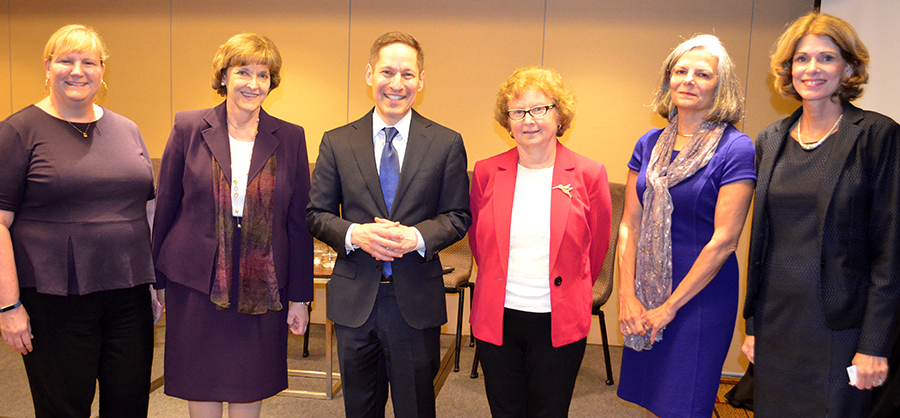You are here
UN General Assembly Elevates Antibiotic Resistance to Crisis Level
What do we do if antibiotics no longer work and are no longer the “miracle drug” we’ve all come to take for granted since at least the 1940s? This question was a key topic at the 71st session of the United Nations (UN) General Assembly in New York City this week and weighed heavily on my mind. This was only the fourth time in UN history that a health issue has been the topic of the main “High Level Meeting” at the assembly, where heads of state dig deeper into one key issue affecting the world. For anti-microbial resistance to be elevated in such a manner shows that we are facing a serious global problem if we don’t find solutions now. I was glad to be able to attend several sessions this week, and wanted to share a few highlights.
According to the Centers for Disease Control and Prevention (CDC), each year in the United States, at least 2 million people become infected with bacteria that are resistant to antibiotics and at least 23,000 people die each year as a direct result of these infections – globally, studies estimate those annual deaths to be 700,000 million. During the UN meeting this week, global leaders committed to act on antimicrobial resistance (AMR), calling it “the greatest and most urgent global risk.”

In a side session at UNGA earlier this week, the CDC Foundation hosted a timely conversation about this global health threat. Many key global leaders were present at this meeting, including Rebecca Martin, Ph.D., director of CDC’s Center for Global Health, CDC Director Tom Frieden, M.D., the South African health attaché to the U.S., and representatives from academia and the vaccine industry. During this session, Dr. Frieden expressed his concern that we may be moving into a “post-antibiotic era,” which would turn back the clock on medical and public health advances. Dr. Frieden stressed the need for collaboration through the Global Health Security Agenda, and the session highlighted in particular the danger drug resistance places on key U.S. and global programs fighting malaria and tuberculosis.
Imagine the lives we will lose if widespread drug resistance took hold in those two diseases alone. We are already seeing dire numbers of people with drug-resistant TB. Drug-resistant malaria is taking hold in the Mekong region, and health officials fear resistance could spread into affected areas of Africa. There is a need for multifaceted approaches to drug resistance. For instance, at our session we discussed the urgent need to scale up work to find new and better vaccines to address these and other diseases because preventing them would mean that antibiotics would no longer be needed.
A key message that I took from this session is the need for a concerted effort between the public and private sector, academia and civil society to address this issue with a commitment to share knowledge and resources. No one group is going to tackle this issue alone.
Of course, there were other pressing health issues put forward during UN week. One of these is the growing global burden of cardiovascular disease. Did you know that out of every five of the 17.5 million people who die from a cardiovascular disease, four are killed by a heart attack or a stroke? More surprising to many is that three quarters of these deaths come from lower and middle income countries. In addition to attending sessions about AMR, I was also able to attend the launch of the new Global Hearts Initiative, which aims to beat back the global threat of cardiovascular disease. Based on the Global Hearts technical packages, WHO, CDC and partners will provide governments with the technical support required to implement and scale up interventions to reduce blood pressure and prevent heart attacks and strokes. Learn more about this exciting initiative.
I was energized by the discussions this week, and I am excited for the opportunities ahead to help combat these global health threats. We can all do so much more when we work together. The CDC Foundation looks forward to doing our part to make real progress working with CDC on these challenges.
